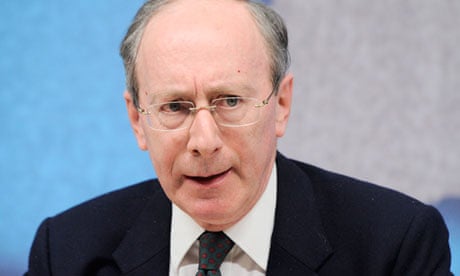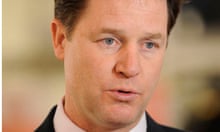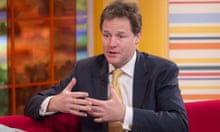The government's plans to track everybody's web and mobile phone use rest on some "pretty heroic assumptions", the head of MI5 has told MPs and peers.
The disclosure comes in a report from the intelligence and security committee, appointed by the prime minister, which says the Home Office's draft communications data bill is needed to maintain access to data which is vital in investigating terrorism and serious crime.
But the cross-party committee, which is chaired by the former foreign secretary Sir Malcolm Rifkind, does say that ministers need to give more details on its proposals if the public and parliament are to be convinced of the necessity of the bill.
The home secretary, Theresa May, agreed to a fresh round of consultations and to redraft the "snooper's charter" legislation after the deputy prime minister, Nick Clegg, said it needed to be "sent back to the drawing board" and an all-party "scrutiny committee" concluded that much of the case for the £1.8bn project was "fanciful and misleading".
The ISC report, which is based largely on evidence taken in private from the security services and the police, was published in redacted form on Tuesday and backs up the government's claim that there is a serious problem which requires action.
"We recognise that changing technology means that the agencies are unable to access all the communications data they need, that the problem is getting worse, and that action is needed now," conclude the MPs and peers.
But they say that more thought needs to be given to the level of detail included in the bill, particularly to the powers to make detailed orders after it becomes law.
"Whilst the bill does need to be future-proofed to a certain extent, and we accept that it must not reveal operational capability, serious consideration must be given as to whether there is any room for manoeuvre on this point: parliament and the public will require more information if they are to be convinced," says their report.
"We have similar concerns regarding the background information accompanying the draft bill. Whilst we recognise the need to take action quickly, the current proposals require further work. In particular, there seems to have been insufficient consultation with the communications service providers on practical implementation, as well as a lack of coherent communication about the way in which communications data is used and the safeguards that will be in place. These points must be addressed in advance of the bill being introduced."
The new round of consultations with internet and phone companies are believed to have started last month.
The MPs and peers voice scepticism over Home Office claims that because of rapid changes in technology,there is already a 25% "capability gap" between the tracking data that the security services need to access and their ability to do so. They reveal that Sir Jonathan Evans, the director general of MI5, told them that this calculation rested on some "pretty heroic assumptions" but say that whether the 25% figure is accurate or not is immaterial because the fact remains that there is a serious problem.
They also disclose that alternative ways of gathering such intelligence, such as carrying out surveillance or investing in undercover operations, are risky, expensive, slower and more intrusive by comparison.
Nick Pickles, of privacy campaign group Big Brother Watch, said: "Two expert parliamentary committees have cast serious doubts on the claim that it is necessary for every person's email, website browsing and social media activity to be logged and kept for one year. When the director general of MI5 suggests the Home Office's evidence relies on some 'pretty heroic assumptions', alarm bells should be ringing loudly," he said.
"The report recognises there are weaknesses in monitoring people suspected of wrongdoing. It is becoming increasingly difficult for ministers to justify monitoring every member of the population instead of developing their ability to monitor people who are under suspicion."




Comments (…)
Sign in or create your Guardian account to join the discussion